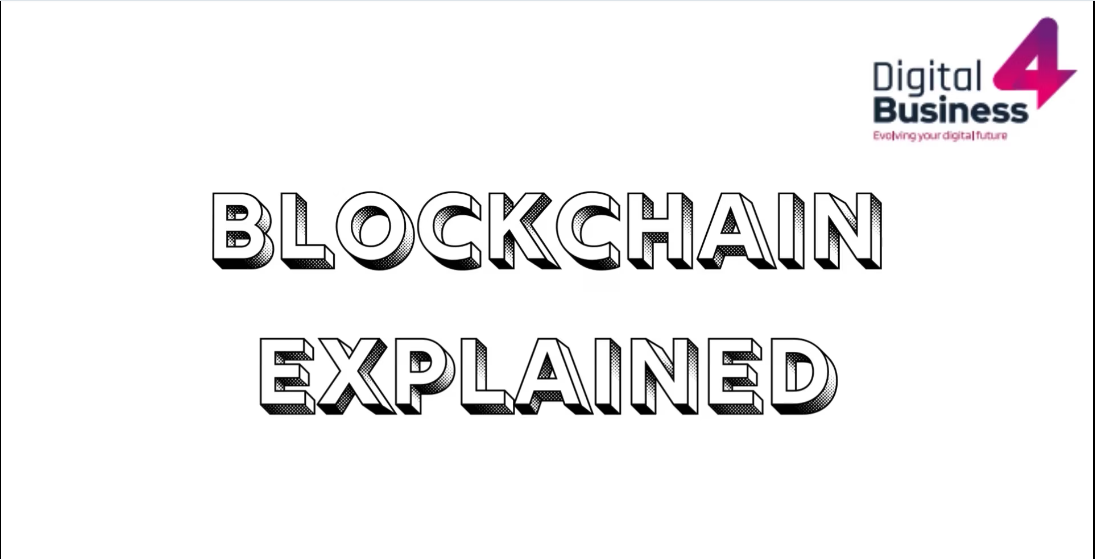Discover the future of digital innovation in business
Learn how new technologies are transforming modern business environments and driving competitive advantage.
This module helps learners understand how blockchain affects modern businesses. Students will learn about the basics of blockchain, including distributed ledgers, decentralisation, cryptocurrencies and dApps.
The course also covers the ethical and legal issues of using blockchain technologies. Additionally, it looks at how businesses can use blockchain to gain a competitive edge. By the end of the module, students will have the knowledge to use blockchain effectively in business.
Embrace a new era of innovative digital learning
Expert tutors support students throughout the course. Learning involves live lectures, self-study, and hands-on labs.
Methods like problem-based learning, gamification and flipped classrooms are used, leveraging technologies like artificial intelligence. Progress is measured through ongoing and final assessments, including a project (50%) on applying Blockchain to business problems and a final test (50%).
Time commitment
Classroom and demonstrations: 24 hours
Practical work/tutorials: 24 hours
Independent learning: 77 hours
Total: 125 hours
Credit points
5 ECTS
Full course breakdown
Subjects covered:
Blockchain Technologies is a 5 ECTS module delivered over 2 hrs of synchronous class time and 2 hours of asynchronous content per week for 12 weeks. An indicative schedule of topics to be addressed each week is outlined below:
- Introduction
- Introduction to Blockchain and Cryptocurrency
- Historical Context of Blockchain and Cryptocurrencies
- Overview of Different Blockchain Types
- Introduction to the Blockchain Stack and its Core Components
- Blockchain Stack and Core Components
- In-depth Discussion on Web3 and Technological Fundamentals
- Detailed Analysis of Block Composition and Consensus Mechanisms (POET/ POB/ POS/ POW)
- Basics of Distributed Systems and Distributed Ledger Technology (DLT)
- Cryptographic Foundations: Hashing and the Merkle Tree
- Blockchain Management
- Principles of Decentralisation and Brewer’s CAP Theorem
- Examination of Public, Private, and Enterprise Blockchains
- Business Case Development for Blockchain Applications
- Cryptocurrencies and the Blockchain
- Handling Cryptocurrencies: Storage, Use, and Wallets
- Exploration of Altcoins and Mining Processes
- Overview of Recent Trends and Developments in the Cryptocurrency Space
- Evolution of Blockchain
- Detailed Study on the Evolution and Revolution of Blockchain: From Bitcoin to Hyperledger
- Discussion on Enterprise Blockchain, Digital Identities, and Current Use Cases
- Security, Identity & Cryptography in Blockchain
- The CIA Triad in Blockchain: Confidentiality, Integrity, Authentication
- Exploration of Symmetric and Asymmetric Encryption, Non-Repudiation, and Public/Private Keys
- Hash Functions, Digital Signatures, Anonymity, and the Concept of Self-Sovereign Identity (SSI)
- Blockchain Applications I – Bitcoin
- Comprehensive Overview of the Bitcoin System and Stack
- Examination of Bitcoin Transactions, the P2P Network, and the Mining Process
- Consensus Mechanisms: Proof of Work (POW)
- Blockchain Applications II – Ethereum
- Comprehensive Overview of the Ethereum System
- Smart Contracts, Decentralized Applications (DApps), and the Ethereum Virtual Machine (EVM)
- Introduction to DAOs, Decentralized Finance (DeFi), and NFTs
- DApp Development I
- Introduction to DApp Development Environments and the Web3 Stack
- Basics of NodeJS and Express in the Context of Blockchain
- DApp Development II
- Advanced Tools for DApp Development: Infura, RemixIDE, ERC Smart Contracts
- Practical Use of Ganache, Truffle, and Blockchain APIs
- Legal & Ethical Aspects of Blockchain
- Discussion on the Regulatory Landscape for Cryptocurrencies and Tokens
- Anti-Money Laundering (AML), Counter-Terrorist Financing (CTF), Know Your Customer (KYC), and Know Your Transaction (KYT) Requirements
- Ethical Considerations and Ongoing Legal Dynamics
- Emerging Topics in Blockchain
- Exploration of Current Research Directions and Emerging Topics: CBDCs, Privacy, the Metaverse, and Quantum Computing’s Impact on Blockchain
Learning objectives
This module helps learners understand and assess the impact of blockchain in modern business environments. Students will explore blockchain basics like distributed ledgers, decentralisation, cryptocurrencies, and dApps. It also covers ethical and legal issues, and how blockchain can provide a competitive advantage.
By the end of the course, students will be able to:
- Critically assess blockchain technologies and their revolutionary impact on financial systems, integrating analysis of core components and pioneering use cases.
- Analyse and differentiate between blockchain protocols, addressing ethical, legal, and practical adoption challenges, to foresee the technology’s evolving landscape.
- Develop communication skills by presenting blockchain-based business solutions to stakeholders with varying levels of technical knowledge.
- Collaborate effectively within multidisciplinary teams to design and implement a blockchain application, employing critical analysis to evaluate its infrastructure and applicability within various contexts.
- Strategise blockchain integration within enterprises, synthesising technological and regulatory insights to navigate and leverage emerging opportunities.

Module leader
Grace Herbert, National College of Ireland
Grace draws on a strong background in cybersecurity and computing, alongside extensive experience at the National College of Ireland, to design and lead the development of innovative modules across key emerging technologies. She has led the development of the Cloud Computing and Internet of Things modules and co-developed the Blockchain Technologies and Quantum Computing modules in collaboration with Lorraine Gorimani.
Each module is grounded in critical thinking, technical rigour, and real-world relevance, equipping students with a robust understanding of both foundational principles and strategic applications. Grace is committed to advancing educational innovation and empowering learners with the knowledge and practical skills needed to navigate rapidly evolving digital landscapes.
New digital opportunities for D4B students
This module is designed for professionals and graduates aiming to deepen their understanding of blockchain technologies and their growing role in digital business transformation. Informed by industry needs across Europe, it focuses on the critical skills required for blockchain strategy, design, and deployment in business environments.
Learners will gain expertise in blockchain protocols, decentralised applications (DApps), security frameworks, and emerging developments such as smart contracts and decentralised finance (DeFi). This will prepare graduates for a range of future-focused roles including blockchain application designers, compliance and governance specialists, and innovation strategists in sectors such as fintech, cybersecurity, logistics, and supply chain management.
Graduates will not only understand blockchain’s technical foundations but also develop the ability to evaluate its ethical, legal, and strategic implications for businesses of all sizes, from SMEs to multinational enterprises.

A key part of the Digital4Business network
This Blockchain module is integral to the Digital4Business programme, an innovative online master’s funded by the EU. It develops future digital leaders and strategists, exploring how digital transformation drives business innovation and efficiency, providing the future-facing expertise needed for the digital era.
FAQs
Relevant EQF Level 6 qualification required in a relevant field including but not limited to: computer science, IT, engineering, maths, business, or economics. Without this you will have an interview and assessment to evaluate certifications, qualifications or professional experience.
Minimum B2 English proficiency, plus 2 years’ work or education in an English-speaking environment. IELTS: 6.0; TOEFL PBT: 600; TOEFL CBT: 200; TOEFL iBT: 100. Alternatively, proficiency may be assessed via a test or interview
This EU co-funded programme is open to all EU27, EEA, UK and Ukrainian nationals with a passport or valid ID from one of these countries.








)